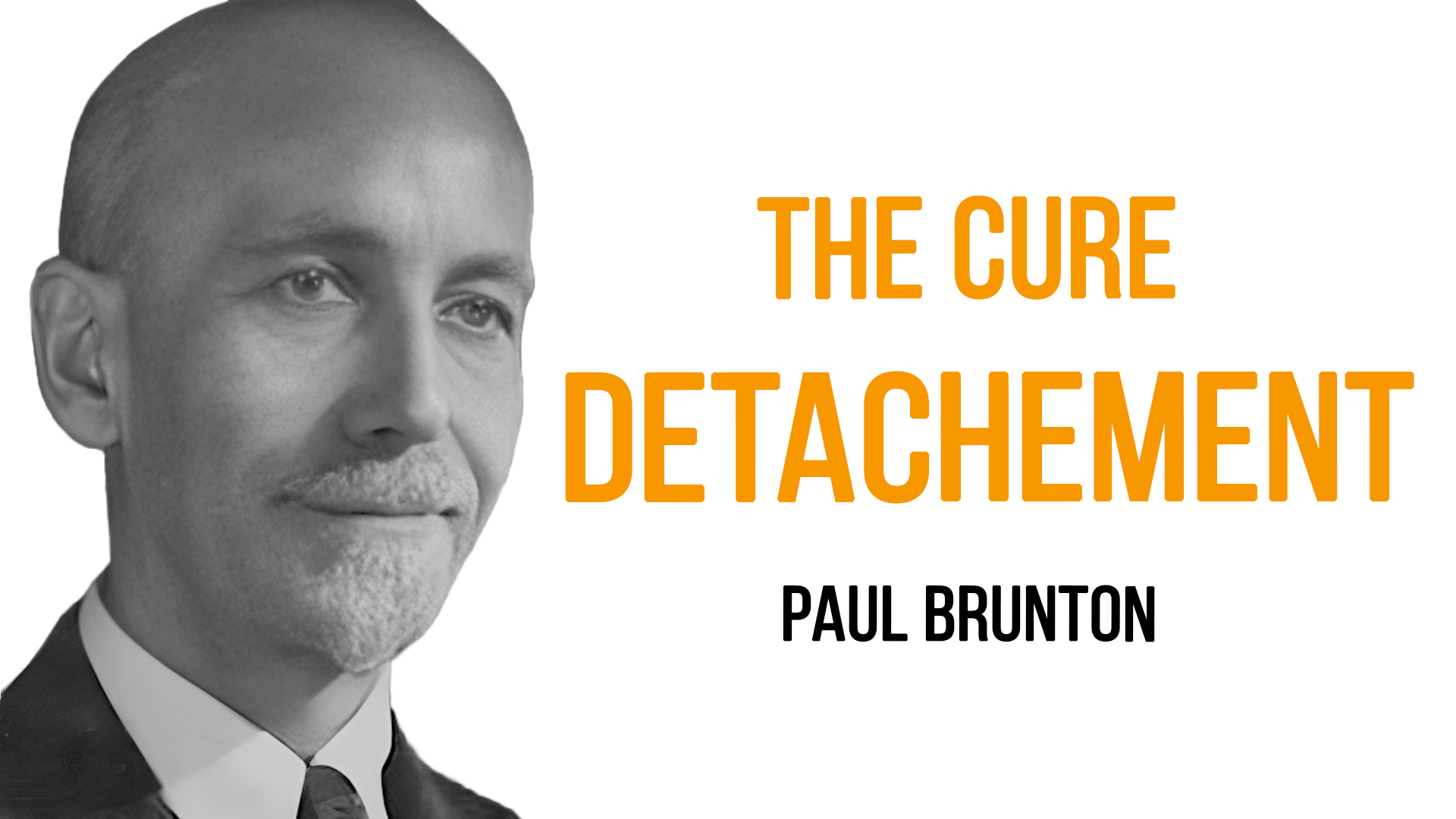
Text extracted from the book: The Cure – Detachment
Paul Brunton (1898-1981), renowned journalist, mystic and philosopher, was one of the most dynamic spiritual authors of the twentieth century. Born in London and traveled extensively around the world. His first ten books, published between 1934 and 1952 in more than thirteen languages (including Portuguese and Spanish), made millions of people in the West awaken to the wisdom and mystical practices of the East.
They were based on their own experience of the author and his meetings with instructors spiritual and ancient traditions around the world. From 1952 he lived almost anonymously and compiled a synthesis of Eastern and Western, ancient and modern approaches to the search for inner reality.
Learn To Be Detached
Even when you share life, work, and the pleasures of this world, also learn to set yourself aside as a witness to all of them. Learn to be a spectator as well as a participant. You might say this is an impossible task, contradictory, a pull in two opposite directions at the same time. Yes, it seems that way in theory, but in practice, you will find that by dedicating enough time, understanding, and effort to it, this can be achieved. For in this task, you are not alone. Behind it is your own self. From your resources, and by your grace, the path to this wonderful achievement can be found.
How insignificant all your earthly successes must seem to a dying person.
This is the mental state that can be called inner detachment, which the aspirant needs to cultivate. Cultivate detachment, for this is a means of becoming a truly free man. He is always himself. He is not distracted by worldly turns of events. Never discouraged by difficulties. Events pass through the detached man; he knows them for what they are: transient, coming and going, always in motion. They are moving until they finally meet death. He will live the present moment without haste. He will receive things as they come. But a constant purpose will be hidden behind this calm detachment. He will establish within himself a refuge from the great agitation and rush of modern existence, but he will not withdraw from it.
Until you learn not to care about what they say or how they behave, you show that you still need to achieve maturity. The mature man clings to nothing. But he accepts everything worth accepting, without, however, binding himself to the need for it to the point of suffering too severely if fate should remove it again. For a sensitive person, living in the world is very difficult. They are tempted to renounce, to abandon, or to hide from it and follow their own path. But if they obtain that inner peace and practice enough to remain centered, mundane life transforms into a sacrament and is perceived as the transient spiritual drama that it is, and thus it is supported.
The mature man clings to nothing.
To be detached from the world does not mean to be uninterested in the world. Do not confuse inner detachment with insensitive indifference. A man can become detached without becoming dehumanized. He can live internally separated from the rest of the world without diminishing his goodwill and good feelings for others. If such a man wants to live in an unshakeable inner peace, he can do so only if he no longer worries— not only about himself but also about others. It is indeed an art to live alone amidst the crowd. It is not that he takes a neutral position in all controversies; he perceives too much for that. He prefers to be unlinked and detached, attending to his own matters, where alone he can do greater good. When a man needs no one and possesses no one, he is much closer to peace and strength. If you wish to enjoy inner peace, you must practice inner detachment.
Those who can resolve to relinquish everything will receive everything. Those who dare to withdraw themselves from emotional oscillation will find the peace that surpasses all understanding. Those who can perceive that they are their own obstacles along the way will, in a not too long time, realize the truth. The man who practices this spirit of detachment is no longer a victim of conflicting emotional states. He feels free within himself.
All you truly need is inherent and can be drawn from that stillness. The man who knows how to live in his own center and does not deviate from it often discovers that he does not need to make any movement to satisfy a need. Usually, it resolves itself at the right moment. If he can transcend himself and become independent of attachments, desires, and the emotions of the ego, absolute peace awaits him.
An array of resources
Our comprehensive suite of professional services caters to a diverse clientele, ranging from homeowners to commercial developers.
Études Architect App
- Collaborate with fellow architects.
- Showcase your projects.
- Experience the world of architecture.


Études Newsletter
- A world of thought-provoking articles.
- Case studies that celebrate architecture.
- Exclusive access to design insights.
“Études has saved us thousands of hours of work and has unlocked insights we never thought possible.”
Annie Steiner
CEO, Greenprint
Watch, Read, Listen
Join 900+ subscribers
Stay in the loop with everything you need to know.
